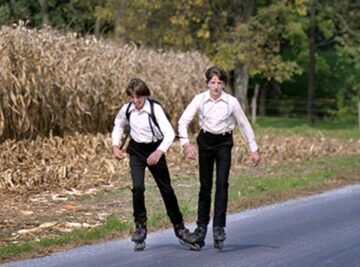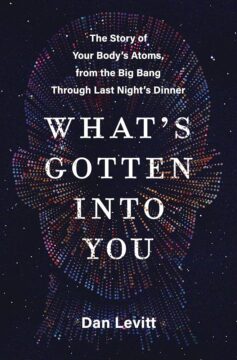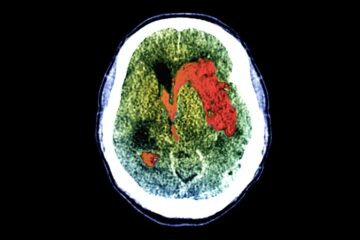Sanoja Bhaumik interviews Rahul Verma in Phenomenal World:
SANOJA BHAUMIK: It’s been two months since India’s Lok Sabha election, and Prime Minister Narendra Modi must now govern as part of the NDA coalition with other parties. What are the implications of the new NDA coalition for Modi’s government?
RAHUL VERMA: The election results were a surprise. Exit polls had predicted a landslide for the BJP-led government. While some gains for Congress were predicted, few expected that they would reach almost 100 seats. It’s important to note that from his time as the Chief Minister of Gujarat to his tenure as the Prime Minister of India, Modi has never run a coalition government. One may call the BJP-led government in 2014 and 2019 an NDA government because there were allies, but those allies did not have a significant bearing on government formation. As the BJP has lost a significant number of seats from 2019 and is now running a coalition, multiple pressure points have emerged, and they will continue to have a bearing on the government.
First, between 2019 and 2024, it seemed like Prime Minister Modi and Home Minister Amit Shah were in total control of the party. They called the shots. But at the same time, to some extent, we are likely to see a much reduced imprint of Modi and Amit Shah—such as in the choice of Chief Ministers, the next BJP party president, among others. I don’t think this would have occurred if the BJP won the majority.
Second, I think there are going to be some pressure points that will emerge from the larger BJP ideological family. Over two terms, and especially from 2019 to 2024, Prime Minister Modi was able to create a new ideological arc in India’s political landscape. Many of the demands of the Hindu nationalist Rashtriya Swayamsevak Sangh (RSS)-BJP—which has been there for the last seventy-five years—were fulfilled..
More here.
Enjoying the content on 3QD? Help keep us going by donating now.

 A
A In America today, we are bad at conscious decisionmaking about technology. Our best efforts lately leave much to be desired: a decade of zero-sum argument about whose speech norms will prevail on social media, a long-delayed and fragmented debate about smartphones conducted through research about a teen mental health crisis, and scaremongering and special interests determining the fate of what was once the promise of “too cheap to meter” nuclear energy.
In America today, we are bad at conscious decisionmaking about technology. Our best efforts lately leave much to be desired: a decade of zero-sum argument about whose speech norms will prevail on social media, a long-delayed and fragmented debate about smartphones conducted through research about a teen mental health crisis, and scaremongering and special interests determining the fate of what was once the promise of “too cheap to meter” nuclear energy. In 1918, the citizens of Moscow, the new capital of Communist Russia, struggled to maintain a semblance of normal life. It wasn’t easy. A brutal civil war between the White and Red Russian armies was raging. The West had imposed a trade war. The capital was aswirl with revolutionary ideas, new ways of thinking about equality, justice, and history. Those of means who had not fled were demoted to ordinary citizens and forced to share their wealth and homes with the less privileged. Despite all the revolutionary fervor, Alexander Oparin, a young biochemist steeped in radical scientific ideas, received disappointing news. The censorship board would not permit him to publish a manuscript that speculated on how life arose from mere chemicals. Though the Bolsheviks had overthrown the tsar a year ago, their revolutionary ideology had not yet filtered down to the censors, perhaps because they were not yet ready to directly antagonize the Russian Orthodox Church.
In 1918, the citizens of Moscow, the new capital of Communist Russia, struggled to maintain a semblance of normal life. It wasn’t easy. A brutal civil war between the White and Red Russian armies was raging. The West had imposed a trade war. The capital was aswirl with revolutionary ideas, new ways of thinking about equality, justice, and history. Those of means who had not fled were demoted to ordinary citizens and forced to share their wealth and homes with the less privileged. Despite all the revolutionary fervor, Alexander Oparin, a young biochemist steeped in radical scientific ideas, received disappointing news. The censorship board would not permit him to publish a manuscript that speculated on how life arose from mere chemicals. Though the Bolsheviks had overthrown the tsar a year ago, their revolutionary ideology had not yet filtered down to the censors, perhaps because they were not yet ready to directly antagonize the Russian Orthodox Church. The protests stem from long-running resentment over a quota system that saw
The protests stem from long-running resentment over a quota system that saw  A final idea that frames Harris’ interpretation of Śāntideva—one that is clearly correct, and unappreciated—is that the universal altruism and the attitudes of kindness, care, impartiality, and joy in the accomplishments of others that Śāntideva recommends do not constitute self-sacrifice or self-abnegation. Instead, Harris demonstrates that, on Śāntideva’s view, they are both constitutive of and instrumental to human happiness (40 ff., 60 ff.). So, when Śāntideva compares pleasure in the everyday world to honey on a razor blade, he is pointing out that the pursuit of our own pleasure in the end yields only pain, because of the attachment it generates to a fragile commodity; when Śāntideva argues that we only become happy when we dedicate ourselves to the welfare of others, the freedom from attachment to our own narrow interest expands our sources of joy. As Harris puts it, “Perfect giving, for Śāntideva, is private, but other-focused; self-benefitting, but radically benevolent; total, and yet not self-injurious” (67).
A final idea that frames Harris’ interpretation of Śāntideva—one that is clearly correct, and unappreciated—is that the universal altruism and the attitudes of kindness, care, impartiality, and joy in the accomplishments of others that Śāntideva recommends do not constitute self-sacrifice or self-abnegation. Instead, Harris demonstrates that, on Śāntideva’s view, they are both constitutive of and instrumental to human happiness (40 ff., 60 ff.). So, when Śāntideva compares pleasure in the everyday world to honey on a razor blade, he is pointing out that the pursuit of our own pleasure in the end yields only pain, because of the attachment it generates to a fragile commodity; when Śāntideva argues that we only become happy when we dedicate ourselves to the welfare of others, the freedom from attachment to our own narrow interest expands our sources of joy. As Harris puts it, “Perfect giving, for Śāntideva, is private, but other-focused; self-benefitting, but radically benevolent; total, and yet not self-injurious” (67). At least one-quarter of people who have severe brain injuries and cannot respond physically to commands are actually
At least one-quarter of people who have severe brain injuries and cannot respond physically to commands are actually  I imagine the ideal way in which to read Giovanni Boccaccio’s profane and earthy 14th-century classic The Decameron is to be ensconced for a sweltering summer at the Villa Schifanoia. There you would have a small but elegant room overlooking the Tuscan hillsides whose winding roads are lined with those tall and preposterously skinny trees, while evenings would be given over to feasts in the yellow-walled courtyard where you dine on cantaloupe wrapped in prosciutto cut to a near-translucent pinkness, pappardelle with fresh pesto studded with garlic and pine-nuts, and a thick cut of charred and marbled ribeye whose interior is as luridly crimson as a muscular human heart.
I imagine the ideal way in which to read Giovanni Boccaccio’s profane and earthy 14th-century classic The Decameron is to be ensconced for a sweltering summer at the Villa Schifanoia. There you would have a small but elegant room overlooking the Tuscan hillsides whose winding roads are lined with those tall and preposterously skinny trees, while evenings would be given over to feasts in the yellow-walled courtyard where you dine on cantaloupe wrapped in prosciutto cut to a near-translucent pinkness, pappardelle with fresh pesto studded with garlic and pine-nuts, and a thick cut of charred and marbled ribeye whose interior is as luridly crimson as a muscular human heart. May Webb sees her first hum standing at a bus stop, and mistakes it for a sculpture. One year later, in the anxious “now” of Helen Phillips’ new novel
May Webb sees her first hum standing at a bus stop, and mistakes it for a sculpture. One year later, in the anxious “now” of Helen Phillips’ new novel  Roughly one year ago, thousands of people gathered in Denver, Colorado, for the largest psychedelic conference in history. The mood was electric, with most attendees confident that the US Food and Drug Administration (FDA) was on the verge of approving its first psychedelic drug.
Roughly one year ago, thousands of people gathered in Denver, Colorado, for the largest psychedelic conference in history. The mood was electric, with most attendees confident that the US Food and Drug Administration (FDA) was on the verge of approving its first psychedelic drug.